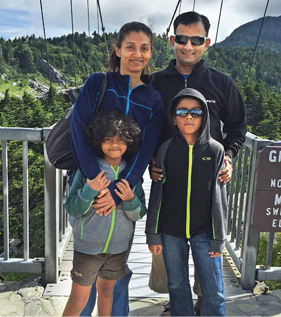
Thiagarajan Suryanarayanan is perhaps one of the most fascinating corporate leaders you can meet. Starting from the ground up at Asian Paints, he built a strong career foundation which went a long way when he helped shape up Accenture in its early days in India. Currently, the Global Head of the Talent Supply Chain at HCL Technologies, Thiagarajan has his work cut out for him. A strong work ethic, a brilliant mind and immense passion for his work make him one of the most accomplished HR professionals in the country. His wife, Ushma Thiagarajan is Senior Project Manager at Infosys in Raleigh-Durham, in North Carolina, USA and has been with the company since 1999. Despite both being in high-profile jobs, they have admirably balanced work and marriage including the upbringing of their two children, aged eight and six. They speak to Corporate Citizen about their high-profile career and what it takes to achieve a work-life balance
For the super speedster (in work and words) and globetrotter Thiagarajan Suryanarayanan, his erstwhile girlfriend, now wife, Ushma Pancholi has been at the centre of all his career-building decision making. She was his junior in Visvesvaraya Regional College of Engineering (VREC) in Nagpur in 1996. They got married in 2001 after a five-year courtship.
Says he, “My career decision throughout the last 10 years has been my relationship with my then girlfriend, and now wife. I took up MBA because I knew that after my engineering, my parents would pressurise me to get married. They did not know then that I was dating Ushma. I gave them the excuse that if I got married, I would not be able to find the time to study again. So I wanted to pursue my post-graduation immediately.”
He adds further "Also,I knew that if I took up sales and marketing, I would be posted in a rural area. And my girlfriend got a job at Infosys, Pune. I knew I had to take up a job which had postings in big cities. That’s why I opted for Asian Paints.”
Ushma reminisces with romantic nostalgia. “We first met during our annual Inter-Department Cultural Festival in Visvesvaraya Regional College of Engineering, Nagpur (now rechristened as Visvesvaraya National Institute of Technology) in the year 1996. I was a freshman in Computer Science while he was a junior (Third Year) in Electronics Engineering. He had come to attend our internal quiz and ended up getting a lot of chocolates for all the audience questions he answered correctly. Even though he refused to share the chocolates with me, I took notice of him that day”.
She further recalls, “Over the subsequent days we interacted a bit during some events and even went to a nearby lake for a nice little walk. Maybe it was the air by the Ambazari Lake or the greenery in the Japanese gardens at Seminary Hills (in Nagpur), but something clicked and we kind of knew this was it. I guess between the multiple walks we had around campus and the evening kachoris and samosas we had at Bajaj Nagar near the Girls’ Hostel, we both grew close to each other and before we knew, he was graduating from college and going to Mumbai to start his career with Air India. At the time, we had to give this some certainty and we both committed to be together and here we are, 20 years later. Two kids and two decades and he still doesn’t share his kachoris or ice creams with me!”
Adds Thiagarajan, “Both of us were the serious kind, we knew what we wanted to do. Then we went for our internships—I went to Air India and she went to Goa. We kept in touch, and when I reached the final year, as the D-day approached when I would be graduating from college, I said, ‘I am going to be gone in May, but I am going to be there for you.’ We decided that we were going to marry. We knew there would be problems, because at that time my sister was coming out of a troubled love marriage, so my parents were sceptical—inter-caste, inter-community had become taboo. We knew we had to wait for some time. In Indian society, if you are successful, all marriages are approved. If you aren’t, nothing is approved. So we knew that if we did well, if we got good jobs and had our own money, our parents would turn around. I said to her, “First you crack a good job”. She got a campus job with Infosys. Back then, getting a job at Infosys was a big deal. I got into Asian Paints. We were in good companies, getting paid well. Once we saved some money, got some professional status, we decided to marry. Our parents were okay with it, even though they weren’t too happy with this inter caste alliance.’’
They currently reside in Raleigh, North Carolina, in the USA. States Thiagarajan, “It is a small city, I chose it because it is an educational, R&D hub. It is like Mysore, a planned city, small, very nice place to live, up and coming, and excellent for kids’ education. Living in New York is no different from living in Mumbai. It doesn’t matter to me where I stay, as long as I’m available where I need to be. When my CEO needs me in Delhi or New York, I’m there. My job involves extreme amounts of travel. I have taken over 200 flights in the last two years, and half of them are international. I don’t spend more than two weeks in a continent.’’
Today, there could be many who would want to marry me. But back in engineering college, there was nobody who would have wanted to marry me because I had nothing then. When somebody is willing to commit her life to you at a time when you had nothing, then she has really committed her life to you because she actually saw something good in you — Thiagarajan
I have very fond memories of studying at the Symbiosis Institute of Business Management (SIBM), Pune. Back then, SIBM was not in the lovely campus it is today. It was just a four-storey building. The college was attempting some new initiatives; in fact, Mr Pillai in HRD ran yoga courses and instilled discipline. SIBM provided a strong foundation for us to work in different corporations. I did my summer internship in Coca-Cola. Back then, placements were quite strong at SIBM, so I had a choice of jobs. I picked up Asian Paints because they were known to provide the best management training.
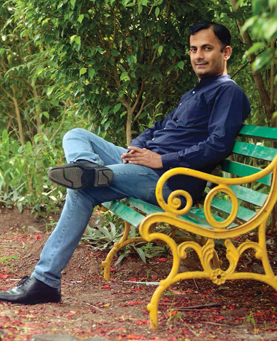
I have worked for over 15 years, I have had a phenomenal career. I have travelled widely, worked in several countries including South America, Australia and Japan. Asian Paints gave me my strongest grounding in management principles. I’ll give you an example—in Asian Paints, even though you’re specialising in HR, everybody needs to learn how to paint. You have to get into dirty clothes, and know how to scrape the walls.
Asian Paints gave me a chance to work with unions in the factory at Bhandup and in Patancheru in Hyderabad, where it has the largest factory. In those two years, I had a chance to negotiate with unions. This was a very unique experience, just after coming out of college. At the Bhandup factory they spoke in Marathi, and the Hyderabad factory, Telugu. I knew neither. I had to edit the magazine, ‘Tutāri’ meant for internal communication with the workmen. So you literally had to go through a cultural assimilation before the workers accepted you as one amongst them. But in those two years I represented the management, conducted salary negotiations and signed two settlements—that was one of the most definitive experiences. At that age, to represent the management was fascinating.
I have spent a lot of time working in the western world. One of the things I appreciate about multinational companies is that they can be quite direct in their communication. In the Indian work culture, we tend to beat around the bush. It makes communication very inefficient. Many a times it is actually best to fire a person than skirt around the issue. In the US, the average notice period is two weeks as compared to several months here. There is also a high degree of transparency in countries like US and UK.
Spain: When I first landed in Spain, they didn’t tell me that they used Spanish as the business language in the office. I assumed that like in any Accenture office, they did business in English. People there write in English, but they talk in Spanish. I was supposed to be there for two weeks and carry out the audit. I had little choice but to actually learn the language. The good thing is that the Spanish also has Latin phrases like English, so it was not difficult. I enrolled for a course in Spanish. But it was quite revealing that even in an MNC, work could be done in the local language, and that work habits were substantially different from ours.
In Spain, dinner was at 10pm, so lunch would not start till late afternoon. They start their day very late, and are generally quite lax. In terms of pace, if you compare Mumbai and Madrid, they are polar opposites. You also realise that it is very difficult to get work done out of Latin Americans and Spaniards, partly because they take life at a very different pace.
China: China is very different. In China, people speak English very poorly but their written English is better. Being subservient is part of their culture, so they don’t speak up in front of their bosses. In all likelihood they may not understand what you say because they lack in spoken English and English comprehension, but they will not speak against you. You may host a meeting, and assume it is going well because they nod their heads. Whenever I had a conference call with the Spanish or Chinese, I would always make sure my chat window was open. They are more comfortable asking questions on chat. And if you budget a typical conference call for an hour in the West, I would budget three hours in China.
Latvia: I visited Latvia a number of times. Latvia used to be part of the USSR. Many people don’t know Russian culture. It’s very unique. In Russia, people don’t respond to emails immediately. You send an email, they ignore it. You send another one, they ignore it again. You send a third email and then they respond. If you don’t persist in following up, people don’t assume it’s important.
Slovakia:Slovakia has Germanic roots. They are very efficient, and very precise and very smart people.
Poland:Poland is now the hub of analytics. The standard of maths education in Poland is very high. They have Jewish roots. Israelis in general are very good at maths and finance. So it is not a surprise that Warsaw and Krakow are becoming hubs for data analytics. Poland is like a mini-India. The scale is very small, but the model is the same.
What you are destined to get, will eventually come to you. You just have to play the part and keep working on things you believe are right. If you chase things that you want to get instantly, they will elude you. If you go after money, you will not, get it. If you go after something you believe in, the money will follow
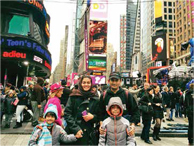
We were in Hyderabad when Accenture happened. We had a personal crisis; Ushma had a miscarriage there, so she was not happy, she wanted a change of environment, to move somewhere close to Chennai and Goa, where our parents lived. Bengaluru was a nicer place. Asian Paints didn’t have anything in Bengaluru. But Accenture was setting up operations in India at that time. They started in Mumbai and were setting up office in Bangalore. So we went to Bengaluru We were less than 100 employees at Accenture then, I was one of the earliest ones. Accenture has the largest campus in Bengaluru, but was relatively unknown in India then. People could hardly pronounce ‘Accenture’. They would say, “Kya company ka naam hain?” When I joined, the biggest challenge was to hire a lot of people and to attract the best. We went from 100 to 15,000 in two years. That got me noticed in Accenture, because I did what was most important for the company. As we got the scale, my CEO at Accenture, now the CEO of the financial services of the company said, ‘Let’s make sure we bring quality standards to the country.” He wanted to implement PCMM (People Capability Maturity Model). It’s basically a quality standard for the HR process. Nobody had done that before. PCMM became my window to the world. I started implementing it in India; it went off very well. After that, I was told to scale it up across the world. I did the same PCMM journey in multiple companies in multiple continents, but in different contexts. I went to places like Mauritius, Latvia, Slovakia, and even those you would find difficult to locate on a map, or get a visa to go to.

Accenture PCMM took me around the world. Every two years I changed my role in the company. The key inflection point was a three-year period where I took advantage of Accenture’s flexi programme and worked from home in Bangalore. I used to only commute outside India for meetings, otherwise I was home. We had kids, my wife went to work and I stayed home with them. We had a nanny and we put them in day-care. So I actually had a chance to babysit the kids when they were young. Once they started school I got back into my heavy travelling schedule. Then I worked with Bhaskar Ghosh, one of the most senior leaders at Accenture, with whom I ran the Talent Supply Chain (TSC) agenda for Accenture in India. In 2014, the only reason I considered leaving Accenture (despite many offers from Reliance and HCL which I wasn’t interested in), was that I realised I would not get to be the CHRO, even if I wanted to, because it is a very large company. In a multinational company, even after so many years, the probability that an Indian would make it to the No. 1 job didn’t seem too high. So, I joined HCL.

The type of work, per se, is the same because both are professional services, IT services companies where I do HR work. But the context is different. HCL is owned by Shiv Nadar. People talk about shareholder value. But here you actually meet the biggest shareholder, in flesh and blood, and he will tell you what he expects. Shareholder value is not an abstract construct. If he says he wants 23 percent profitability this quarter, he wants 23 percent profitability in that quarter. If you don’t deliver it to him, if you don’t do your job, his net worth (he is the 5th richest Indian) will fall by a few hundred million dollars. The pressure you experience is very different. You get to interact with the press, you have a public presence, we are a listed company, and because your management team is so small, you have to do everything by yourself, unlike at Accenture where you have a specialised team for everything. You end up carrying a lot in this company and you end up learning a lot. And with that comes a lot of travel. HCL has offices in many countries, but it is a very tightly controlled company. You go to Delhi, take orders, come back and execute.
I have to take utmost care of my health, as I travel a lot. I have to be careful about what I eat and how much I sleep. Being a vegetarian, my choices are limited, as several countries are meat-oriented.
Outsourcing is not a new thing, it has always been there. In IT, we carry out the outsourced jobs of our end clients. Similarly, HR is a support function for the core outsourced assignment. Fifteen years ago, hiring at IT was an art, now it is a factory model. You don’t require people like me to design the recruitment process. A lot has already been done. For the commoditised stuff, you get far better results and efficiencies of scale when you outsource it to a specialised vendor.
Technology is changing professions. It’s changing media, it’s changing HR. The job of a recruiter in a few years will not be the same, it will not exist the way it does now. One of the most fundamental jobs in recruiting is the process of screening a resume and filtering it amongst the whole stack, and mapping it to a job. There are algorithms to do that, without even opening a resume. We can pass through hundreds and thousands of resumes, through internal and external job databases. Those algorithms are developed by companies in Bangalore. We have piloted some of them. The results are very promising. So far, HR has gotten away without really being focused on the employee. A shift of focus on the employee is happening, the employee experience dictating how processes are designed. That is where some of the breakthroughs will come in the next few years.
Automation is leading to the reduction of jobs. India needs to stop expecting IT to be the answer for all of India's problems. Although IT contributes to a lot of export and forex dollars, from a job creation perspective, India needs a hundred million jobs. IT can never deliver so many—it can deliver four to five million jobs at the maximum. India needs a manufacturing revolution. India has milked the IT cow to no end, and we are still expecting it to give milk for another 25 years. IT came into India in the 1990s. It has been there for 20 years. We have got to a level of maturation and maturity, and the industry has found ways to manage with fewer people.
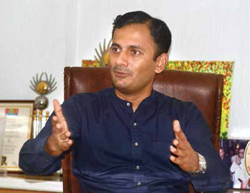
It’s only in the last year that we moved as a family. Today we are Visa holders in the US. In a few months I will be a US Green Card holder, but we hold Indian passports. I have always wanted to be based in India. We are getting paid very well in India, and we are getting to see the world. There is no reason why we should leave the country. This is the best combination you can have. Be in India, live with your parents, have people to help you at home, eat Indian food, and every second week go to Paris or Frankfurt or New York. That’s what I love. We wanted our kids to get some global exposure. So we decided to raise them a few years in the US, a few years in Europe, a few years in Australia, and make them global citizens.
We made a big decision quite quickly. My in-laws started living with us. That's the smartest model. My in-laws have been our backbone till we moved to the US. Then we had to take care of the kids ourselves. Now there is no support, as the grandparents are quite old, and they won’t be able to physically relocate. This happened only last year. For the first seven years, from 2008-15, my in-laws were there. My mother-in-law has been instrumental in bringing up our kids.
Now the kids are eight and six years old, they can manage on their own. They have school from 8 am to 4 pm. Ushma can work from home. In the US, offices start early and they end early too. She comes back early. Some days the kids come back themselves. It’s still a lot of logistics, we have to manage that.
One of the things I appreciate about multinational companies is that they can be quite direct in their communication. In the Indian work culture, we tend to beat around the bush. It makes communication very inefficient
I believe it is the parents’ responsibility. It is the most important job, and also the most difficult job. There is a part of me which says, should we retire right now that we have the money, and just focus on the kids? Or should we take lighter jobs? Or get into academics, do some research work, some consulting work, and not have this big corporate job, because corporate jobs are brutal? Nevertheless, we are coping up well in our dual roles.
You need to remember why you married that person in the first place. I keep remembering why we fell in love. For me it’s really simple. I’ve had a lot of success in life. Today, there could be many who would want to marry me. But back in engineering college, there was nobody who would have wanted to marry me because I had nothing then. When somebody is willing to commit her life to you at a time when you had nothing, then she has really committed her life to you because she actually saw something good in you.
If I had to pick a statement, it would be, ‘What you are destined to get, will eventually come to you—just have to play the part and keep working on things you believe are right’. If you chase things that you want to get instantly, they will elude you. If you go after money, you will not get it. If you go after something you believe in, the money will follow.
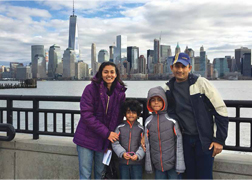
His focus and intensity. He was very confident and had his way with words. He was a prefect at his hostel and was quite well respected in college and even though he represented a rival faculty (Comp Science and Electronics were competing faculties at the time for top honours), I couldn’t help noticing these positive qualities. He was and continues to be quite demanding of himself and all those around him and while I do wish he chilled out a little bit more, we make a terrific team!
Oh yes! Many people told us that our own life was no less than what many Indians saw on screen in “Two States”. Being a union between a Gujarati girl raised in Goa and a Tamilian guy raised in Bengal we are as “Indian” as you get! The challenge really was to keep the relationship going during our long courtship period of four years where we had to deal with geographic distance, expensive telecommunication, societal restrictions, parental reluctance, walking away from some career options, etc. What makes such love marriages difficult is actually the combination of all these variables served to you like a rapid-fire quiz with huge negative marking in case you got the answers wrong. Luckily, for us, we chose the right questions to answer and let a few pass!
I majored in Computer Science at the National Institute of Technology, Nagpur at a time when Computer Science was just beginning to get centre stage in India. I was fortunate to be mentored by Dr Moghe, our dear professor who incubated the department in our college, and got to do some exciting stuff—including working on India’s first super computer. While I do feel like I missed a big opportunity in not pursuing my master’s degree in Science right after my Engineering degree, life had other plans for me and I ended up taking a job with Infosys Technologies which was the first company to visit our college for placements that year. There’s been no looking back since then in many ways!
I am a senior project manager with Infosys Technologies, currently working for a major client of ours in the Insurance domain. I am involved with helping our clients upgrade from their massive suite of legacy applications to migrate to the cloud, making it more cost-effective, enabling our client to make smarter decisions for their consumers.
It’s been a bit of a roller-coaster ride, actually. Walking away from the world of operating systems and theory of computing into the commoditized world of Applications Software was a tough start to begin with. Infosys was just emerging as a marquee employer back in 1999, and joining them as part of a campus recruiting event was pure serendipity. It’s been 16 years since that day and you still see me working for the same company that’s now come to be family. I have had a chance to work on different technologies, industry groups, geographies etc. Adjusting to a pure offshore role in the banking domain after the kids was a challenge, as that meant not being able to meet clients, which is a huge opportunity for learning in the professional services industry. Perseverance pays and today I am back to doing client work out of Raleigh, North Carolina, our home for the last year.
Life is what happens when you are busy making other plans. Given that both of us have had careers in the professional services industry where travel is an integral part, we came to accept this as part of our lives early on. The big thing that’s changed between back then when I first travelled to Canada on work and now when he is away on travel is the role that technology has come to play. Back in the days when emails were just being introduced and international calling was still prohibitively expensive, to now when facetime is a way of life, a lot has changed. And then again there is a big difference with kids around, where distances are not just about him and I managing to stay connected but to ensure the kids stay connected as well. It is a lot of hard work and focus to make it all work, but then we seem to have got our fundamentals right.
We are blessed with two angels—Anirudh, who recently turned eight and Shweta who is six. Their personalities are quite different and that makes parenting quite exciting. From their choice of fruit to sport to app on their iPad, they are so unique in their own ways and parenting them has been life-changing in so many ways. Most importantly, I have got the opportunity to relive my childhood twice over with each of them as they have gone from infancy to being bratty toddlers to now being the adorable kids they are.
Have your own definition of success in life. Do not let others define it for you. Intertwine that with what you want to achieve in “Life”. They go hand in hand in so many ways. Focus and stay focused and never give up during trying times. If Dipa Karmakar can attempt the Produnova to beat the odds of making it to last four at the Olympics, you and I can certainly take a few shots even if it means we will hit a few and miss a few!
What’s happening today is quite generational and universal in some sense, especially where technology has entered human life as significantly. In an era where Facebook posts, snap chat messages are the staple diet of youngsters, job/career changes are encouraged/eulogised. In fact, Tinder is more ubiquitous than newspapers, and this is not a surprise. I do not want to sit in judgment on this matter but being the relatively old fashioned couple that we are, we have chosen to keep things simple. We have realised that good things take time—75 days for the recently planted cabbage seeds to flower in our garden, another 10 years before our son goes to college, years of practice before our daughter can get comfortable with her gymnastics routines, even as technology has indeed compressed time and made things more efficient—like being able to download full movies online in a heartbeat. There is no silver bullet that can guarantee happiness in a long-term relationship. All we have learnt is that it requires hard work, patience and practice.
This question is as old as humanity in many ways. From Jungle Dynamics to politics to Hollywood to high-tech this issue continues to be at the discussion table and for good reason. It is not for nothing that Sheryl Sandberg wrote about her journey so openly in ‘Lean In’ just to make sure people realised that the issues are as real in Hinjewadi as they are in Cupertino. Companies are definitely trying their bit to make things slightly easier and even they have to fight societal norms and stereotypes. As with any major change it will be a slow and gradual process till technology disrupts and equalises the social order in ways that we haven’t thought about yet. My hope is biased towards technology levelling the playing field at a pace that well-intentioned corporate leaders can never hope to achieve at the scale at which this problems needs tackling.
With entire revenue streams of the IT companies at risk with the advent of SMAC —Social, Mobility, Analytics and cloud—it is important for employees to recognise that their jobs will keep getting automated, replaced at speeds they haven’t seen before and it is on them to keep staying ahead of the curve
The experiences that a typical Indian woman goes through in her early years makes her more patient and resilient in general and builds some kind of inner resolve to do things that matter day in and day out even if it is not rewarding in a material sense, like say, corporate careers are. These models are changing rapidly in modern India and the little girl child of today might not be very different from the boy child she is competing with in a friendly game of angry birds. How an individual is in his/her work context, whether as an employee or boss, is influenced in great measure by the experiences he/she is subjected to in the formative years. I can definitely say that there are distinctive styles male and female bosses have, and as a team member one might find a particular style more appealing and relevant at a particular context in one’s life.
The industry has been getting commoditised for some time now. One of the key indicators of that is how entry level graduate salaries entering this industry have stayed relatively flat since I joined the industry 16 years back. With entire revenue streams of the IT companies at risk with the advent of SMAC—Social, Mobility, Analytics and Cloud - it is important for each employee to recognize that their jobs will keep getting automated, replaced at speeds they haven’t seen before and it is on them to keep staying ahead of the curve.
By Vinita Deshmukh and Neeraj Varty